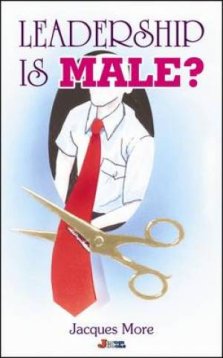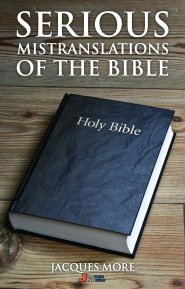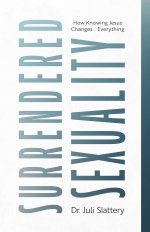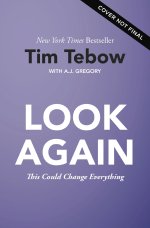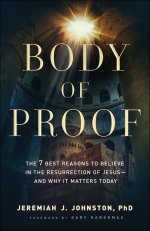I'll first do something the author of this book does not, and tell you a little about myself. I am an amateur theologian, a preaching student from Tilsley College in the UK, a Computer Scientist of 35 years standing by trade, and I have spent the past four years learning Koine Greek and more recently Biblical Hebrew (it fits my professional interests in computer language design.) And, of course, I am a Christian. So: first error in this book is that there is no bio on the author. Who is he? Why is he writing? What school of thought does he follow? I bought the book despite this glaring omission. The author of the Letter to The Hebrews tells us that Christ is the mysterious figure, Melchidizek, but about this author we know nothing. The second error is that the book has absolutely no references. Nowhere does he acknowledge that there are other opinions which might agree, differ or partly agree with his own. Yes, he does reference versions of the Bible in English, Greek and Hebrew (well, just a little), but nowhere does he consider what is known in the huge and active world of Christian and Hebrew scripture translation. This is a major error and flaw in the book, for without knowing what others think, how can we know that what the author thinks is possibly true, without sitting down and redoing all the work he has done? And where he does acknowledge, uncited, that others may disagree we are not told the references so we cannot check whether these people exist or if they do have that opinion or no. He even has the cheek to criticise the Biblical translations community for not reading or acknowledging his work, while he clearly does not rate theirs as he does not refer to it. Occam's Razor: where there are differing possibilities, take the simplest one. Is this author alone and singly correct, or is an academic and practice community of tens of thousands correct? The answer has to be the latter, be default; and this is the author's creation as he does not position himself correctly with respect to other Biblical translation scholars. And so to the issues the author raises. Firstly the book title is highly attractive but a tad misleading. All mistranslations of the Bible are serious. There is an implication, deliberate I feel, that certain ones are more serious than others, and these ones are the ones this author has raised. This is false. For example he omits the (serious) mistranslations of Proverbs 8 where Wisdom is said to have been 'created' by God, whereas the Hebrew does not say this; this is a Jehovah's Witnesses touchstone text which is easily refuted from their deliberate mistranslation dating back to errors in the early Christian era. Many a soul can be saved by knowing what the Hebrew says about the relationship between God and Wisdom from the OT and so into the NT. And here is another major flaw in this book. It would have been more accurate to have called it, 'Some mistranslations of the New Testament into English' for it appears the author has very little knowledge of Hebrew and has no knowledge of other translations. If he had contact with such as Wycliffe Translators (I know 4 people who work for them just through my ordinary church contacts) then they would have been able to help and correct the author, I am sure. As to the actual issues he raises, they are actually few, repetitive and he never manages to make a water-tight case. And, of course, there is no water-tight case ever in language translation as human language is ever partly cultural and culture cannot be fully understood or translated. Some points he makes are clear whilst others are laboured, requiring a range of apparently random Scriptures to support an interpretation the author is seeking to prove. I always read Scripture and issues people raise with an open mind. What if the Bible says we are not actually 'elect'? What if the scripture says women can teach and have authority over men? These are not traditional stances, so, yes, allow the Scriptures to speak. But when the author does so, he finds that there is a percentages game going on. The word might mean 'man' or it might mean 'husband', another words might mean 'chosen' or it might mean 'choice'. This we already know. But, no translator is permitted to change Scripture simply to suit our theology - and, yes, this has been done in the past, not least with the AV/KJB over the Geneva Bible - and say a word definitely means 'husband' and another word definitely means 'choice' and so, on a whim (for this is what it is linguistically) change centuries of Christian thought and practice. A final word. I read the entire book in a sitting. As such it is clear that much of the text has been borrowed from elsewhere. Identical blocks of text repeat regularly throughout the book. The narrative flow is clunky with Scriptures being chucked around half-digested, making the reader's job hard work. I often worry that poor presentation is a reflection on poor thought; this is a perception rather than necessary a reality. But I do doubt anyone proof-read this book before it was committed to print. A final, final word. I do not regret buying this book. The author does raise pertinent issues. I did like the ideas relating to considering the meaning of a word via NT Koine Greek via the LXX then via the Hebrew. But I am sure that serious Biblical scholars know this one and it wasn't, as the author implies, invented by him. So, if you are a serious Biblical translations scholar you might want this one on your shelf to keep your collections complete. Even erroneous thought is useful, at least as a foil. But, for the rest of us, don't read it as it is quite simply wrong.
Trustpilot


